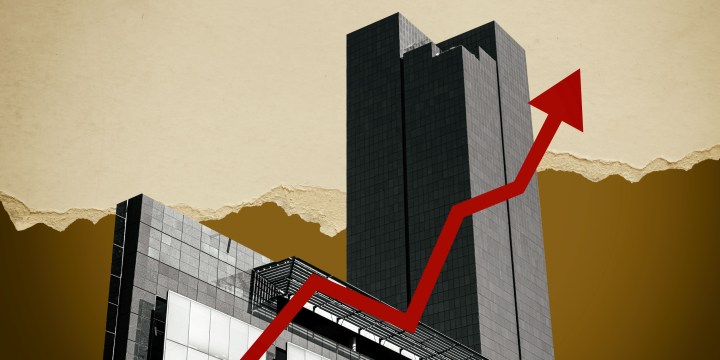BUSINESS REFLECTION
Did the SA Reserve Bank make a mistake by increasing interest rates this time?

There is an old saying that at a certain point, prices rise so fast, it’s difficult to even pay attention. SA is currently deep into that territory, and it’s absolutely no joke.
Following the 50 basis point interest rate increase last week, left-wing economists let loose, as they normally do. The Alternative Information and Development Centre commented that “… even short-term investors can see that South Africa is being led into darkness by the [SA Reserve Bank], hand in hand with Eskom and the National Treasury”.
The difference is that this time, they were joined by other commentators who are typically more centrist, and for the first time I can remember, there are calls for Reserve Bank governor Lesetja Kganyago to resign by people outside the normal wrecking crew.
I get the feeling the actual position of the left-wingers is that there should never be any interest rate increases in any circumstance ever. This is obviously bonkers. But the argument of the centrists – and the left-wingers as it happens – now more or less overlaps, consequently giving it more credibility than it has had.
That argument is simple: Traditionally, central banks raise rates when an economy is running too hot, or when demand exceeds supply, or when labour gets too much of an upper hand in wage negotiations, or when some combination of the above happens together. This is because all or even some of these scenarios will likely result in higher inflation. Obvs.
There is also an international dimension, which more or less requires SA to keep pace with global trends to keep the rand attractive to foreign and local investors. This prevents a declining currency from setting off local inflationary trends all on its own.
But when the Monetary Policy Committee (MPC) announced the increase last week, which, by the way, increased borrowing costs to a 14-year high, the response of the rand was to take a bath. The rand is now trading very close to an all-time low. Remarkably, South Africa is now competing with Argentina to see who has the worst-performing currency in the world.
Of course, you could argue that it would have been worse without an interest rate increase, but given that the rand is already massively underperforming on a historical basis, that hardly seems likely.
Everybody knows the reason SA’s current economic outlook is bleak; blackouts are happening at a rate most people thought improbable only a few months ago. Plus the other stuff. But here is the problem: increasing interest rates will do nothing to solve that problem – in fact, it’s likely to make things worse. Arguably, SA is now at a point where interest rate increases just won’t make any difference.
The argument in favour of the increase is largely the same as it’s always been. The MPC is battling not just inflation but inflationary expectations. Inflation is coming down, but it’s noticeable that it’s declining at a slower rate than, for example, in the US.
The bank dare not put its credibility as an inflation fighter at risk, and it has only one rather blunt instrument to effect that result. SARB has to maintain the belief that it will do whatever is necessary to keep inflation under control.
It’s not like the MPC is unaware of the seeming contradiction of raising interest rates in a time of a declining economic outlook. The committee often talks about this root “conundrum”. But when the rand does slip, inflation expectations drift upwards and it is crucial for the bank to re-anchor inflation expectations, because if it doesn’t, those expectations will become self-fulfilling.
In many ways, the committee is just like everyone in the country: frustrated by what Kganyago calls “largely self-inflicted wounds”. And it’s not like the bank was slow to drop interest rates when the situation demanded it just at the start of the Covid crisis.
South Africans are angry at the committee for increasing rates, but in fact, I’m willing to bet the bank is as pissed off as the rest of us. We should rather target our anger not so much at the bank but at the causes of the bank’s dilemma.
And we all know where that problem lies. DM

















 Become an Insider
Become an Insider
i’m not sure whether I am left wing or right wing in this argument. I am certain that we are stuck in 1940’s economic theory. We can raise prime rate to 20% it will make NO difference to inflation that is driven by externalities, not asset bubbles or irrational investment. Have a look at us and Seychelles over last 24 months. Compare inflation, interest rate, currency and unemployment.